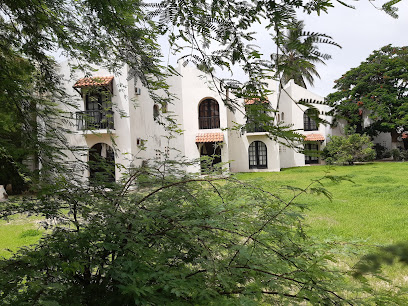
Discover the Wonders of Djoudj National Bird Sanctuary
Explore Djoudj National Bird Sanctuary: A UNESCO World Heritage Site and a paradise for birdwatchers in Senegal, hosting over 300 species of birds.
Djoudj National Bird Sanctuary, a UNESCO World Heritage Site, is a breathtaking haven for birdwatchers and nature enthusiasts. Located near the Senegal River, this national park is home to over 300 species of birds, making it one of the most important bird sanctuaries in the world. Visitors can explore its diverse ecosystems, from wetlands to dry savannahs, while enjoying unrivaled views of migratory flocks and local wildlife.
A brief summary to Djoudj National Bird Sanctuary
- 9QX5+PRF, Debi, SN
- +221771810259
- Visit website
Local tips
- Visit during the early morning or late afternoon for the best birdwatching opportunities.
- Bring binoculars and a good camera to capture the stunning wildlife.
- Consider hiring a local guide to enhance your experience and knowledge of the area.
- Pack plenty of water and snacks, as amenities within the park are limited.
- Respect the wildlife and maintain a safe distance while observing the birds.
Getting There
-
Car
If you are traveling by car, start from Dakar and take the N1 highway heading north. Continue on N1 for approximately 200 km until you reach the town of Saint-Louis. In Saint-Louis, follow signs for the N2 route towards Debi. After around 40 km on the N2, look for signs indicating Djoudj National Bird Sanctuary. The sanctuary is located at the coordinates 16.399321, -16.2404468. Make sure to check your fuel levels before setting off, as gas stations can be sparse along the route.
-
Public Transportation
To reach Djoudj National Bird Sanctuary via public transportation, start at the Gare Routière in Dakar. Take a car rapide or a bus heading to Saint-Louis. The journey may take about 4-5 hours. Once you arrive in Saint-Louis, you can either take a taxi or a local bus to Debi, where the sanctuary is located. Confirm with the driver that they will drop you off at or near the sanctuary. The taxi fare to Debi from Saint-Louis typically costs between 5,000 to 10,000 CFA depending on negotiation.
-
Taxi
If you prefer a more direct route, you can hire a taxi from Dakar to Djoudj National Bird Sanctuary. This option may be more expensive, with fares likely ranging from 50,000 to 100,000 CFA for the trip. Ensure you agree on the fare before starting your journey. The taxi driver will take the N1 highway north towards Saint-Louis, and you can request that they drop you off at the sanctuary.
Discover more about Djoudj National Bird Sanctuary
Iconic landmarks you can’t miss
Mboubene Saint-Louis
43.5 km
Discover the historical essence of Mboubene Saint-Louis, where colonial heritage meets vibrant local culture in the heart of Senegal.
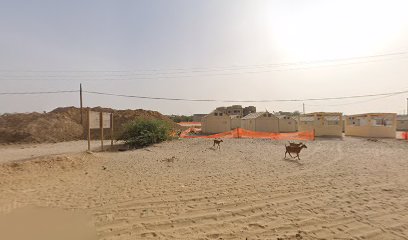
Podor Le Fleuve Du Senegal
48.2 km
Discover the magic of cinema at Podor Le Fleuve Du Senegal, where local culture and modern films blend seamlessly in St. Louis.
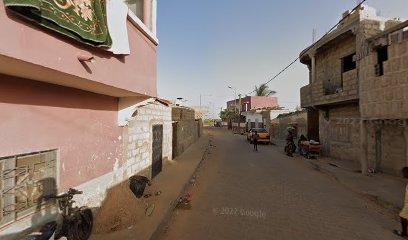
Grande Mosquée de Balacoss
49.1 km
Explore the Grande Mosquée de Balacoss in Saint-Louis, a stunning architectural marvel and a key cultural landmark steeped in rich history.
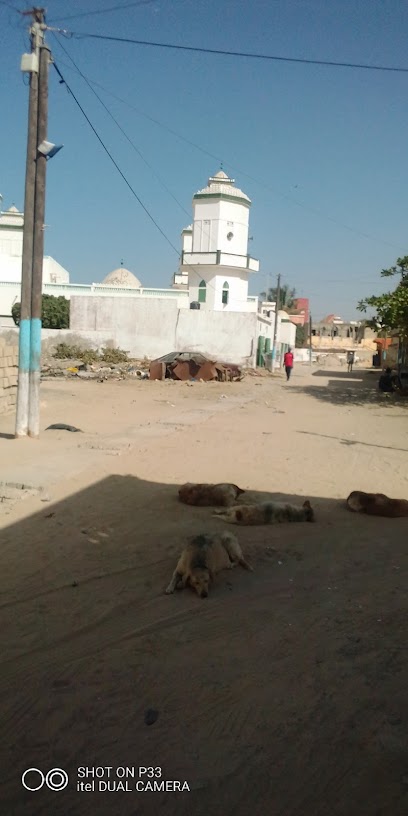
Auchan Saint-Louis
49.6 km
Explore Auchan Saint-Louis for a vibrant shopping experience, featuring local flavors and international products in the heart of Senegal.
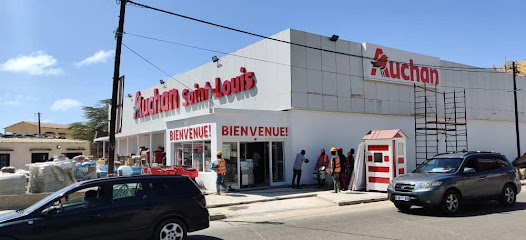
Parking Bayal
49.7 km
Explore Saint-Louis stress-free with convenient parking at Parking Bayal – your gateway to the city's rich culture and history.

La Kora
49.8 km
Discover the flavors of Senegal at La Kora, a delightful restaurant in St. Louis offering an authentic taste of local cuisine in a warm atmosphere.
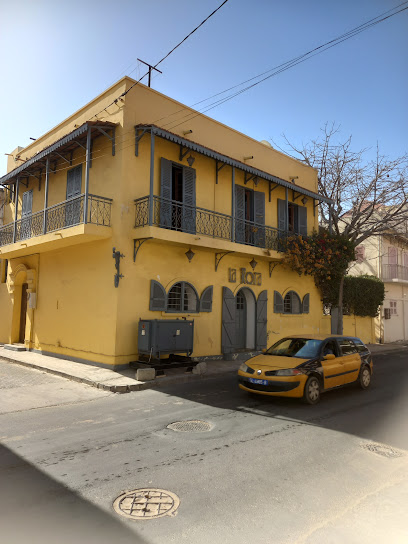
Maison d’Hôtel Sunu Keur
49.9 km
Discover the cultural heart of St. Louis at Maison d’Hôtel Sunu Keur, a charming hotel offering comfort and local charm by the scenic waterfront.

Ndar Ndar music & café
50.0 km
Experience the cultural heartbeat of St. Louis at Ndar Ndar Music & Café, where rich coffee meets vibrant live music in a welcoming atmosphere.
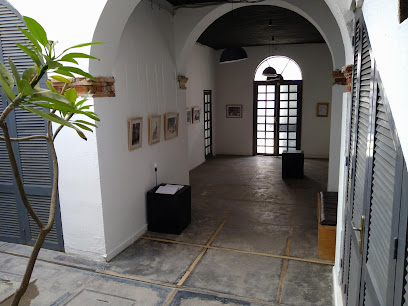
Ndar Ndar House
50.0 km
Discover the vibrant culture and comfort of Ndar Ndar House, a unique hotel in St. Louis, Senegal, perfect for travelers seeking an authentic experience.
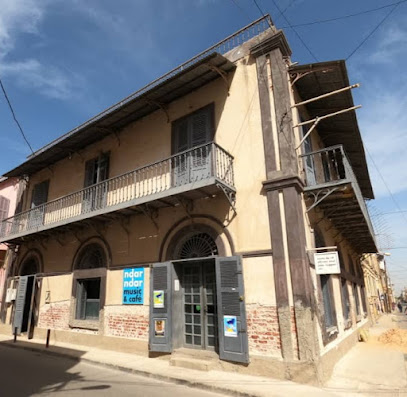
Île Saint-Louis
50.0 km
Explore the serene beauty and rich culture of Île Saint-Louis, a UNESCO World Heritage site in St. Louis, Senegal, perfect for a memorable getaway.
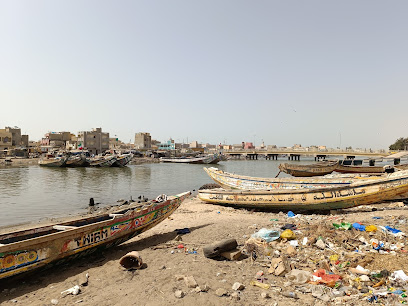
Le Château
50.0 km
Explore the rich cultural heritage of Saint-Louis at Le Château, a vibrant center for art, history, and community events in Senegal.
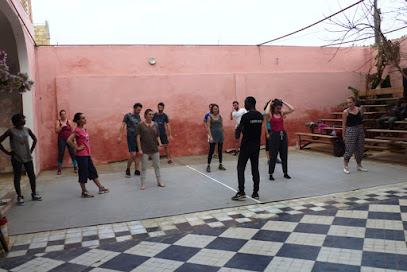
Patisserie Darou Salam
50.2 km
Experience the essence of Senegal through the delightful pastries and sweets at Patisserie Darou Salam in St. Louis.
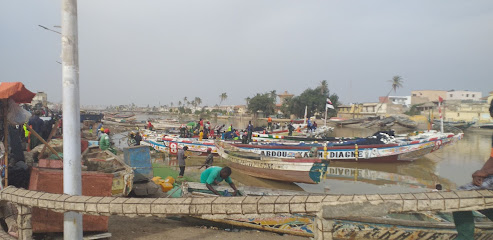
Diocèse de Saint-Louis
50.6 km
Discover the cultural and spiritual essence of Saint-Louis at the historic Diocèse de Saint-Louis, a must-visit for every traveler in Senegal.

St louis senegal
50.9 km
Explore the historical and cultural richness of Saint-Louis, Senegal, with its colonial architecture and vibrant local traditions.
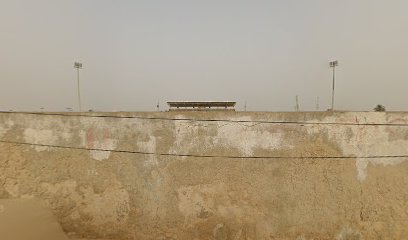
Stade Mawade Wade - Medina Courses
50.9 km
Explore the vibrant atmosphere at Stade Mawade Wade, Saint-Louis' premier sports complex, and immerse yourself in Senegal's thrilling horse racing culture.
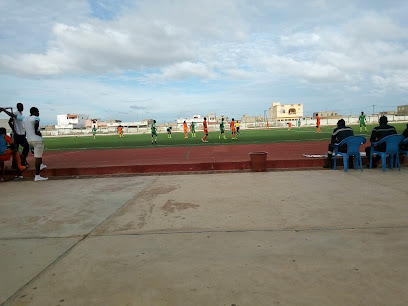
Unmissable attractions to see
Parc National du Diawling
13.5 km
Experience the breathtaking landscapes and rich biodiversity of Parc National du Diawling, a hidden gem in Mauritania's natural heritage.
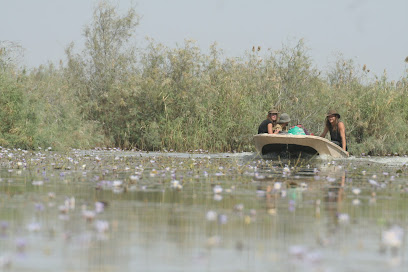
Tour of the egg
41.9 km
Experience the joy and excitement of 'Tour of the Egg', St. Louis's enchanting amusement park featuring thrilling rides and family-friendly attractions.
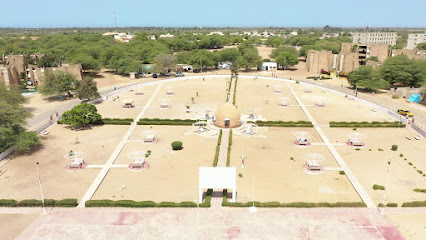
Village des arts de saint louis
48.7 km
Discover the artistic heart of Senegal at Village des Arts de Saint Louis, a vibrant hub of creativity and cultural expression.
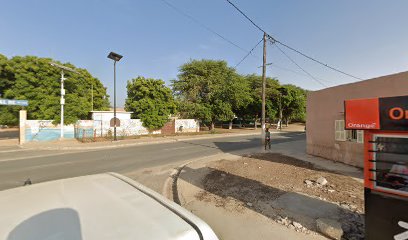
Village Artisanal de Saint Louis
49.0 km
Discover the artistic soul of Senegal at Village Artisanal de Saint Louis, where local craftsmanship and vibrant culture come together in a unique shopping experience.
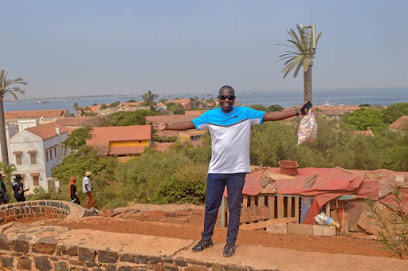
Grande Mosquée de Saint-Louis
49.6 km
Explore the Grande Mosquée de Saint-Louis, a stunning architectural gem that embodies the spiritual and cultural heritage of Senegal.
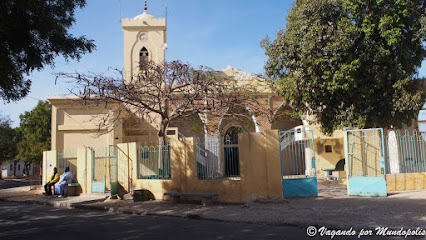
Ndar-Toute-plage
50.0 km
Experience the serene beauty and vibrant culture of Ndar-Toute-plage, a must-visit beach destination in St. Louis, Senegal, offering relaxation and adventure.
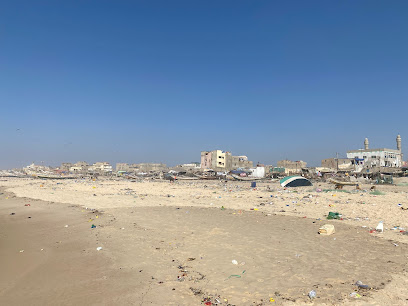
Faidherbe Bridge
50.0 km
Discover the historic Faidherbe Bridge in St. Louis, Senegal, a stunning connection between culture, history, and breathtaking views.
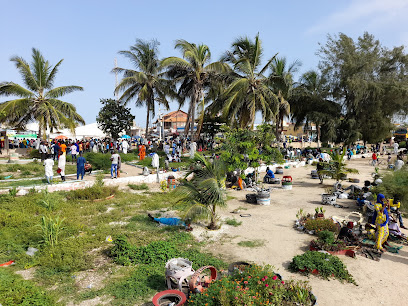
Saint Louis
50.0 km
Experience the rich history and vibrant culture of Saint Louis, Senegal, a UNESCO World Heritage site with stunning architecture and breathtaking natural scenery.
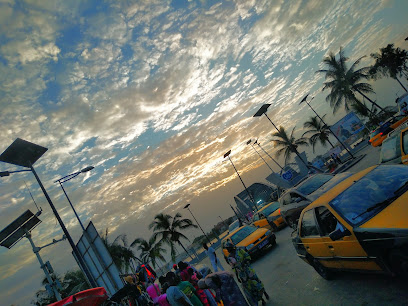
Modou Caleche Saint Louis
50.1 km
Explore the cultural richness and scenic beauty of Modou Caleche in Saint Louis, Senegal - a must-visit tourist attraction for every traveler.
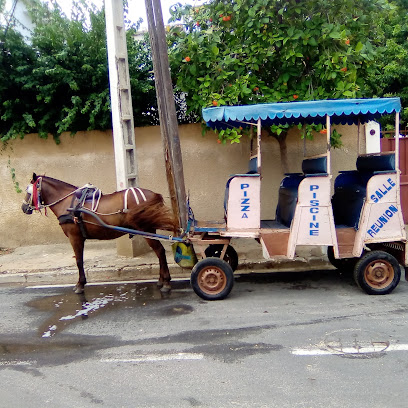
Musée Jean Mermoz
50.2 km
Explore the rich history of aviation at Musée Jean Mermoz in St. Louis, a tribute to the pioneering spirit of French aviator Jean Mermoz.
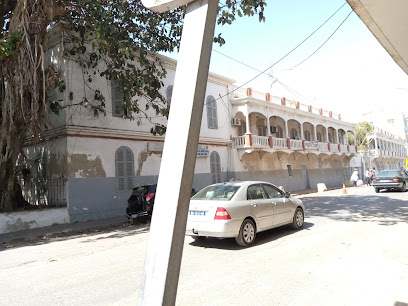
L’église Saint-Louis-en-l’Île
50.3 km
Explore L’église Saint-Louis-en-l’île, a stunning Catholic church in Saint-Louis, Senegal, where architecture meets spirituality and history.
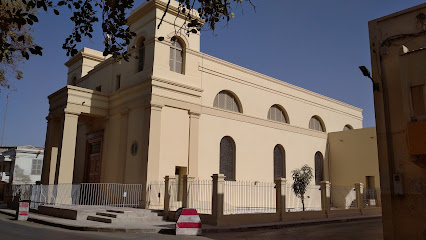
Musée de la Photographie de Saint-Louis
50.4 km
Explore the captivating world of photography at the Musée de la Photographie de Saint-Louis, where art and culture converge in a historic setting.
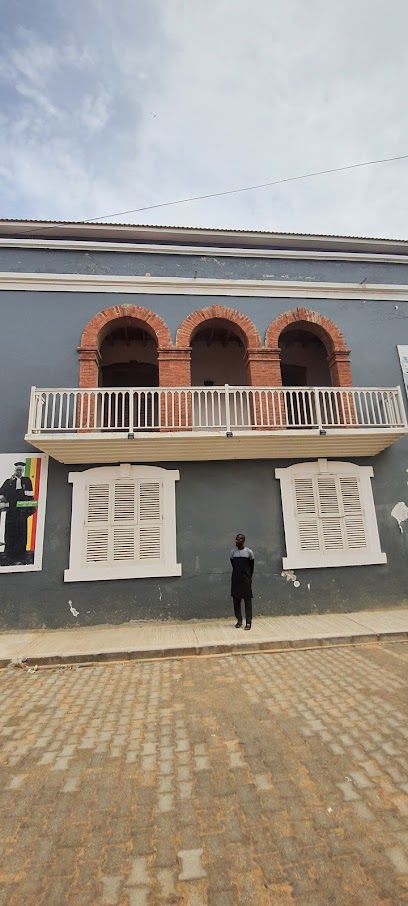
Guet ndar
50.5 km
Explore the vibrant culture and rich history of Guet ndar, a must-visit tourist attraction in St. Louis, Senegal.
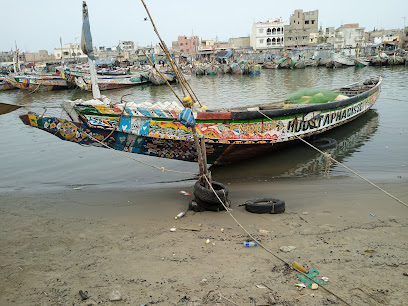
Les Comptoirs - Le MuPho
50.7 km
Explore the vibrant art scene at Les Comptoirs - Le MuPho in St. Louis, Senegal, a cultural gem showcasing contemporary and traditional artworks.
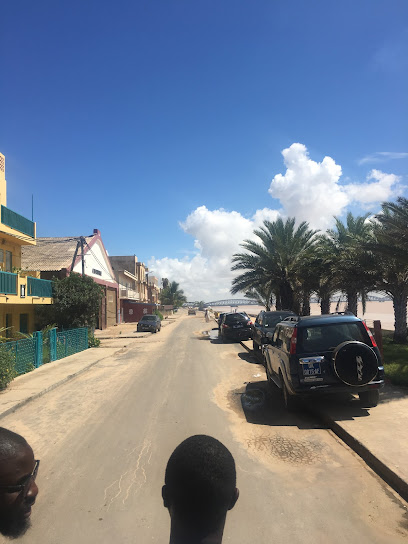
CRDS
50.9 km
Experience the rich culture and history of St at CRDS, a unique library and museum that invites exploration and discovery.
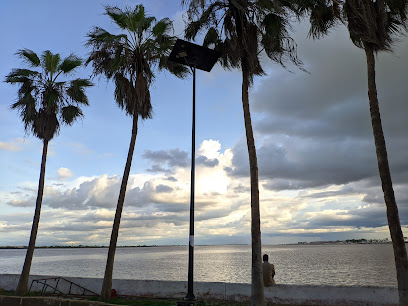
Essential places to dine
Le Kalise
42.0 km
Experience the vibrant flavors of Senegal at Le Kalise in Saint-Louis – a must-visit restaurant for food lovers.

restaurant Maman awa cheikh
42.4 km
Experience authentic Senegalese cuisine at Maman Awa Cheikh in St. Louis - a culinary journey filled with vibrant flavors and welcoming hospitality.

Restaurant Le BonGout
42.4 km
Experience authentic Senegalese cuisine at Restaurant Le BonGout in St. Louis—where tradition meets taste in every dish.
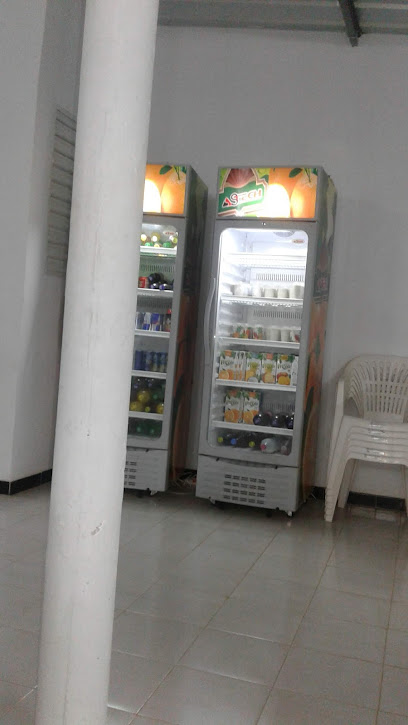
Restaurant Le SEDOR
42.5 km
Experience authentic local cuisine at Restaurant Le SEDOR in St. Louis – where every dish tells a story.
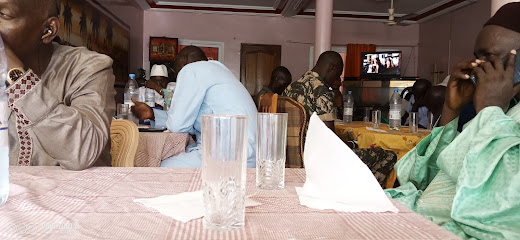
El Malick
42.7 km
Discover the flavors of Senegal at El Malick, a must-visit restaurant in St. Louis offering authentic dishes in a welcoming atmosphere.
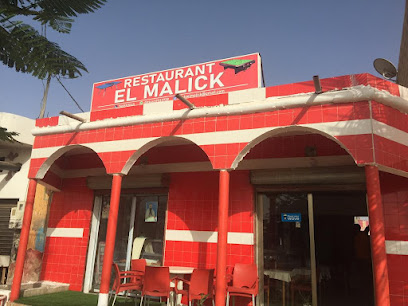
Eden's Ouvert
44.1 km
Savor the flavors of Senegal at Eden's Ouvert, where every dish tells a story in a charming St. Louis setting.
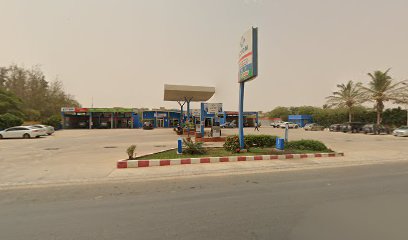
Restaurant Nana
45.1 km
Experience authentic Senegalese cuisine at Restaurant Nana in St. Louis – where every meal tells a story.
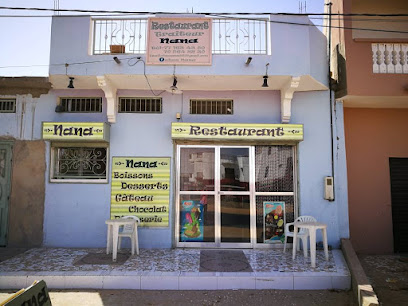
Sant Yalla
45.1 km
Experience authentic Senegalese cuisine at Sant Yalla in St. Louis - where every meal tells a story of culture and flavor.
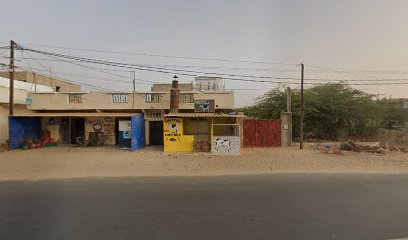
Darou Salam 2 restaurant/hébergement
45.2 km
Experience authentic Senegalese cuisine at Darou Salam 2 in Saint-Louis—where local flavors meet inviting ambiance.
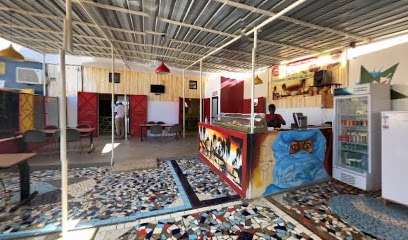
Restaurant Maman Kine
45.7 km
Savor authentic Senegalese flavors at Restaurant Maman Kine in St. Louis—where delicious cuisine meets warm hospitality.
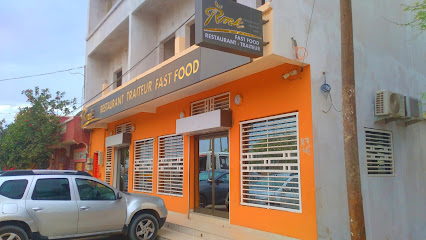
Restaurant De La Residence
47.2 km
Experience authentic Senegalese cuisine at Restaurant De La Residence in St. Louis - where every dish tells a story.
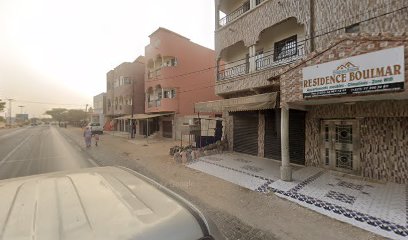
LE PARADIS, SIR SAINT LOUIS SÉNÉGAL
47.9 km
Discover authentic Senegalese flavors at Le Paradis in Saint Louis – where tradition meets culinary excellence.
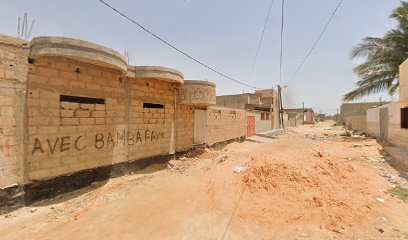
restaurant chez elisa
48.2 km
Discover authentic Senegalese flavors at Restaurant Chez Elisa in Saint-Louis - a true taste of local culture.
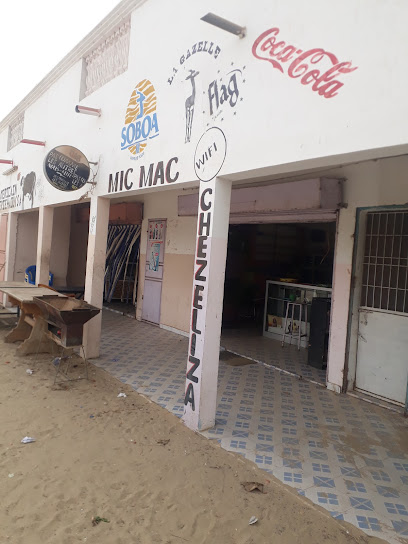
Restaurant djamila
48.2 km
Experience authentic fast food at Restaurant Djamila in St. Louis - where local flavors meet global tastes.
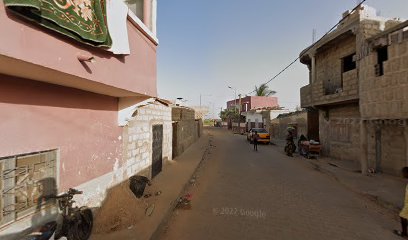
Chez Awa Restaurant
49.0 km
Experience authentic Senegalese cuisine at Chez Awa Restaurant in Saint-Louis—where every dish tells a story.
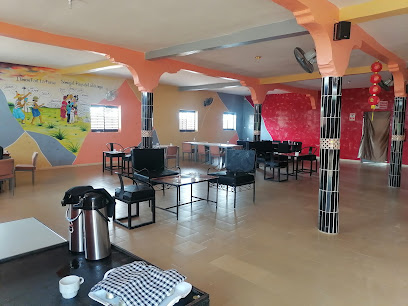
Markets, malls and hidden boutiques
Santa yalla boutique
19.6 km
Discover the essence of Senegal at Santa Yalla Boutique, where local craftsmanship meets modern style in the heart of Saint-Louis.

Gaydel Boutique
45.0 km
Explore Gaydel Boutique in St Louis for unique clothing that reflects local culture and contemporary fashion trends.
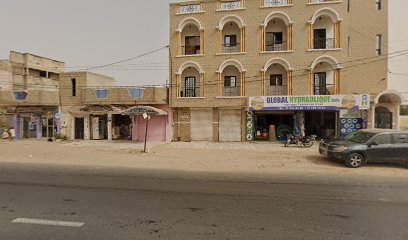
New York Shop
47.3 km
Discover the latest fashion trends and unique styles at New York Shop in St. Louis, your go-to clothing store for all occasions.
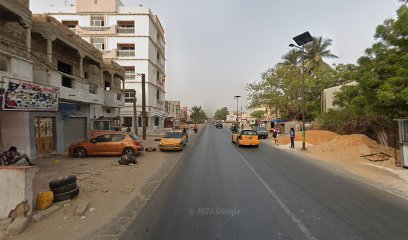
Africa Chips Sénégal
47.5 km
Explore Africa Chips Sénégal in St. Louis for an authentic taste of local culture through unique crafts and treasures.

Astou's Shop
47.7 km
Explore the vibrant textiles and sewing expertise at Astou's Shop, a hidden gem in St. Louis, Senegal, blending tradition with creativity.
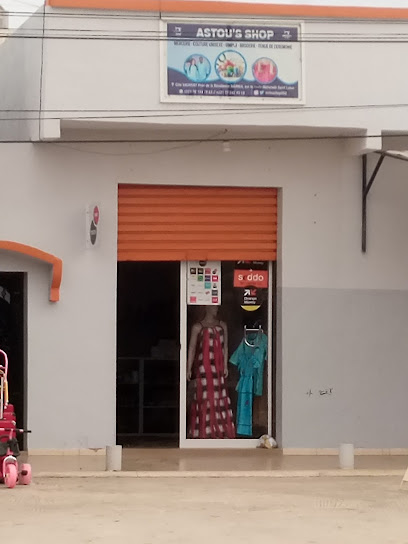
Porokhane Shop
47.7 km
Discover the essence of Senegalese fashion at Porokhane Shop in Saint-Louis, where local craftsmanship meets vibrant style.
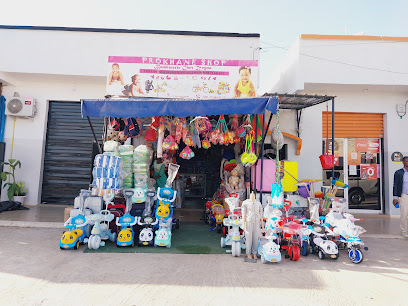
Boutique samba balde
48.2 km
Explore Boutique Samba Balde in St. Louis for a taste of Senegalese culture through its vibrant grocery offerings.
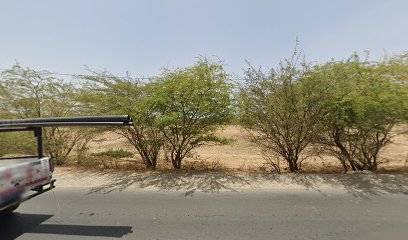
Shell Boutique Ugb SL
48.2 km
Experience the best of St. Louis with a visit to Shell Boutique Ugb SL, your go-to convenience store for essentials and local delights.

Racines d'Afrique
48.2 km
Experience the vibrant culture of Senegal through unique fashion accessories at Racines d'Afrique in St. Louis.

BambaMajusculeBusness
48.2 km
Explore unique handcrafted treasures at BambaMajusculeBusness in St Louis, where local craftsmanship meets contemporary flair.
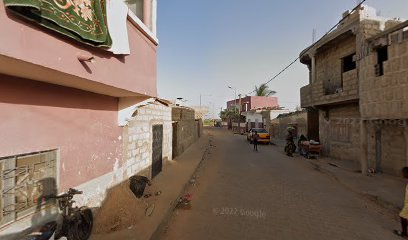
Sowrdr
48.2 km
Explore Sowrdr, St. Louis' charming gift shop, offering unique souvenirs and local crafts perfect for celebrating your travel memories.
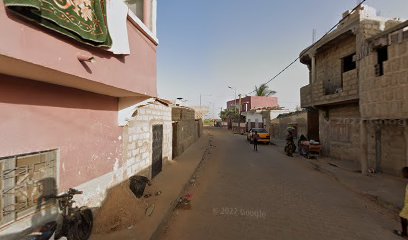
Boutique Sope Naby
48.3 km
Explore the vibrant fashion scene at Boutique Sope Naby in Saint-Louis, where local culture meets contemporary clothing for a unique shopping experience.
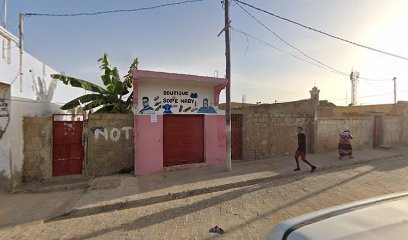
Style et Mode Africaine
48.6 km
Experience the essence of African fashion at Style et Mode Africaine in St. Louis, a clothing store that celebrates culture through vibrant designs and unique styles.

Boutique Yaya
48.6 km
Explore Boutique Yaya in Saint-Louis for a unique blend of traditional and contemporary clothing that showcases local fashion artistry.
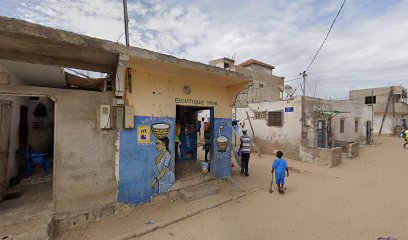
cheikh lo shopping
48.6 km
Experience the vibrant clothing culture of Senegal at Cheikh Lo Shopping in Saint-Louis, your go-to destination for local and contemporary fashion.
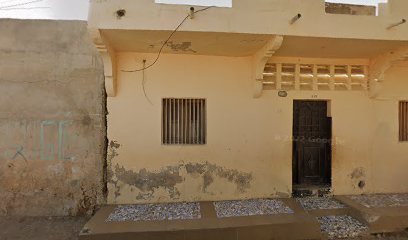
Essential bars & hidden hideouts
Maimouna
14.5 km
Discover Maimouna, a cozy bar in Ndiongo that welcomes tourists with local flavors and a relaxed ambiance, perfect for unwinding after a day of exploration.

Castel Bar
31.5 km
Experience the lively atmosphere and local culture at Castel Bar in Lampsar, a perfect spot for relaxation and socializing.

Charles
43.5 km
Experience the vibrant nightlife of St. Louis at Charles, a lively bar offering exquisite drinks and a dynamic atmosphere.

Ndoumbélane
46.2 km
Discover the vibrant atmosphere of Ndoumbélane, a lively bar and restaurant in St Louis offering local flavors and a taste of Senegalese nightlife.
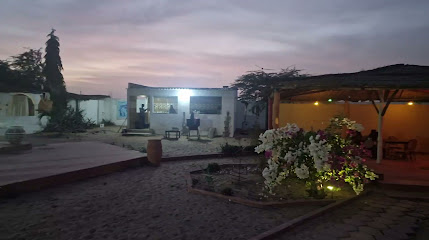
Club La Source
49.1 km
Discover Club La Source in Saint-Louis: A lively bar offering a taste of local culture and affordable drinks in a vibrant atmosphere.

Penda niane
49.2 km
Experience the vibrant nightlife of Saint-Louis at Penda Niane, a lively bar offering refreshing drinks and a taste of local culture.
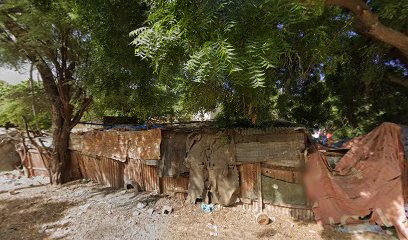
Farmers Coffee Shop Saint-Louis Sénégal
49.7 km
Discover the essence of Senegalese culture and flavors at Farmers Coffee Shop, a charming café in the heart of Saint-Louis.
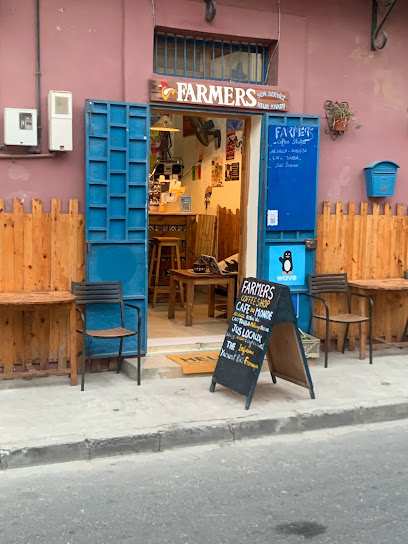
Bar Vip Mix Club
49.9 km
Experience the vibrant nightlife of Saint-Louis at Bar Vip Mix Club, where live music and local culture come alive in a lively atmosphere.
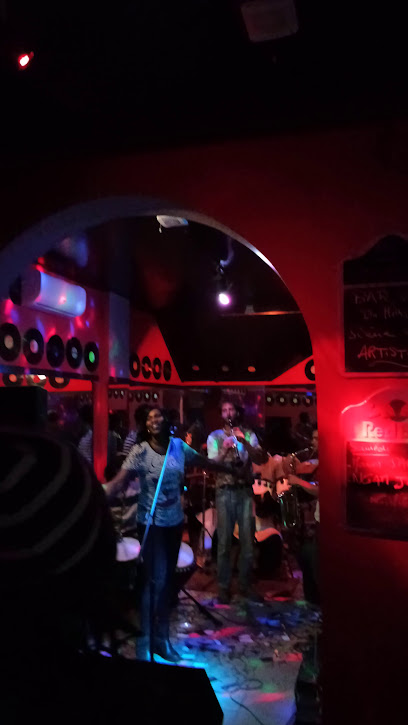
Hotel de la Residence
50.0 km
Discover a charming oasis in Saint-Louis at Hotel de la Residence, your gateway to local culture and comfort.

Le Spoutnik Bar
50.0 km
Discover the heart of St. Louis nightlife at Le Spoutnik Bar, a jazz haven offering live music and a vibrant atmosphere.
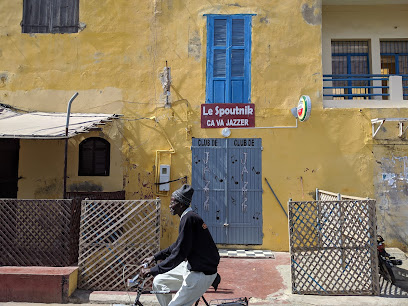
NPA lounge bar night club
50.1 km
Discover the vibrant nightlife of St. Louis at NPA Lounge Bar, where cocktails, music, and dancing create unforgettable moments.
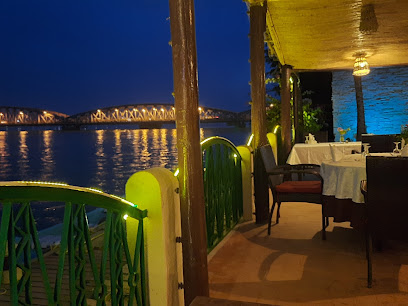
Nulle Part Ailleurs (NPA)
50.1 km
Explore St. Louis nightlife at Nulle Part Ailleurs—a vibrant night club featuring diverse music and an energetic crowd.

Iguane Cafe
50.1 km
Discover the lively Iguane Cafe in St. Louis, a salsa bar where art meets rhythm, perfect for experiencing local nightlife and vibrant culture.
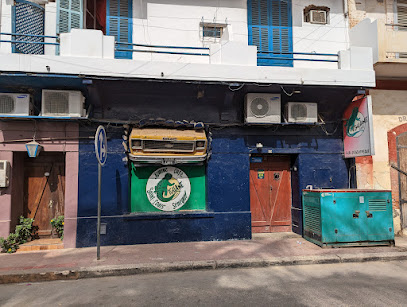
Flag Embuscade Bar
50.1 km
Experience the vibrant nightlife of St. Louis at Flag Embuscade Bar, where local culture meets refreshing drinks in a lively atmosphere.
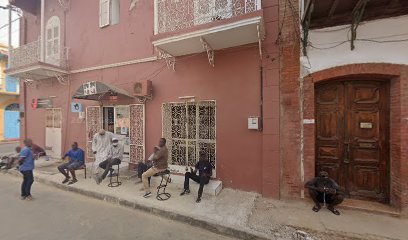
Hotel Mame Coumba Bang
54.0 km
Discover the charm and tranquility of Hotel Mame Coumba Bang, a perfect getaway on La Langue de Barbarie in Saint-Louis, Senegal.
